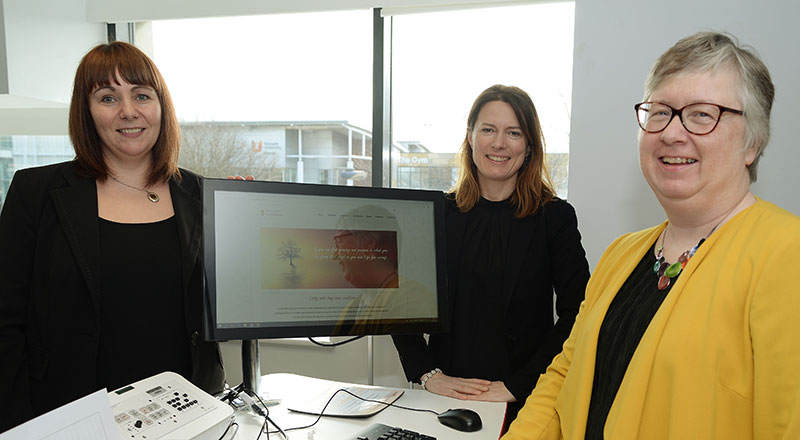Academics develop online tool to help patients with long-term conditions
An online tool for clinicians working with patients who live with long-term conditions is being created by Teesside University academics.

Psychologists Dr Lis Hammond and Dr Stephanie Kilinç, from the University’s School of Social Sciences, Humanities & Law, have created a website to support practitioners and people living with long-term conditions.
The website, Meaning and Purpose, aims to help people to take better control of their condition. The online resource will also provide clinical tools and information which practitioners can use to support their patients to adjust to and manage their condition.
Living with a long-term condition can be challenging, but the hope is the impact can be lessened by learning about the condition and what can be done to take better control by, for instance, finding meaning and purpose.
Dr Hammond and Dr Kilinç held a training workshop at Teesside University to introduce clinical practitioners to the website and share their research findings.
Dr Hammond has developed a new theoretical model called the Integrative Model of Adjustment to Chronic Conditions (IMACC), which can be applied by health practitioners who work to support people that find it challenging to adapt to living with a long-term condition.
Speaking during the training workshop, she said: 'According to NHS England around a quarter of the British population live with one or more long-term conditions, costing up to 70 percent of the NHS budget. More importantly, many people struggle to live well with their condition, so we need interventions that can help people change the way they manage, so they can achieve a better quality of life.'
When used by health practitioners, IMACC can help people identify what gets in the way of achieving good management of their condition and that in turn can make it easier to find ways to change and improve coping. It is important that this is done in collaboration with individuals living with long-term conditions, as everyone is different and needs individual solutions.
However, many find their own ways without help from health professionals and the hope is that the website can be a source of support for people, who are able to help themselves achieve a good quality of life.
Our research shows that finding meaning and purpose in life can help people to manage their long-term condition
Dr Kilinç said 'Our research shows that finding meaning and purpose in life can help people to manage their long-term condition. This could be through crafting, photography, spending time with family or taking part in activities that give someone a reason to get out of bed in the morning. We hope people will share their stories of the ways they find meaning and purpose in life, in the hope they will inspire others.'
The website includes advice and information on wellbeing, to help suggest how a balance can be found between what the body needs and the mind wants. There is also advice on how to listen to your body and to encourage a healthy body, mind and relationships.
Online resources are also available to enable individuals to log their daily strategies and to record how they cope with or manage their condition. There is also a resource, the Neuro Passport, which can be used to record information in relation to their condition so it is all in one place, which may be helpful when gathering together notes when visiting health professionals. This resource was developed by Neuro Key, who Drs Hammond and Kilinç work closely with to ensure their work responds to the needs of people with long-term conditions.
Professor Natasha Vall, Associate Dean (Research & Innovation), School of Social Sciences, Humanities & Law, said: 'We are delighted to welcome partners and practitioners to the University to explore this new online resource to support people suffering with long-term health conditions.
'Our research is increasingly engaging with external beneficiaries and this psychology project, led by Drs Hammond and Kilinç, is a pioneering example of how our research is evolving in collaboration with those that it directly impacts upon.'
The website can be found at meaningandpurpose.co.uk. Health practitioners can find the workshop materials in the practitioner section of the website.
 Teesside University academics join prestigious network of
...
Teesside University academics join prestigious network of
...